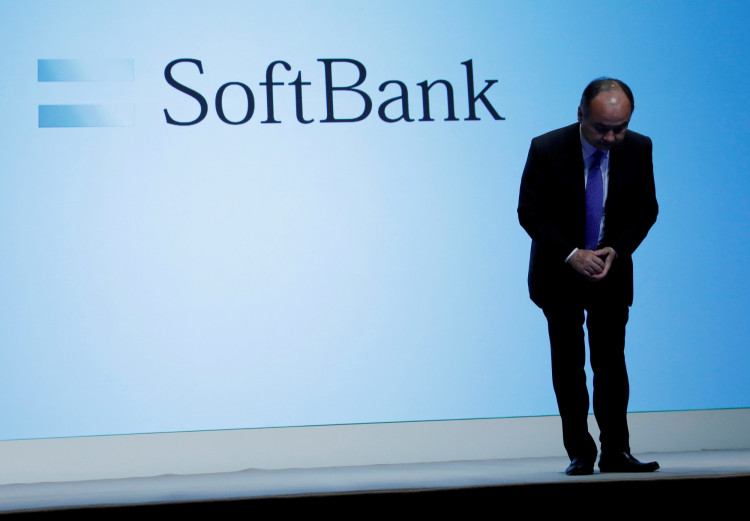The founder of SoftBank Group, Masayoshi Son, announced his resignation from Alibaba's board at the annual shareholder meeting on June 25. As of May 18, SoftBank disclosed that Alibaba co-founder Jack Ma would step down from Softbank's board. Neither executive commented on their departures.
As the biggest shareholder of Alibaba, SoftBank still has right to assign one candidate to Alibaba's board. As of June 15, SoftBank held US$150 billion dollars of Alibaba's shares, accounting for 25.9% of Alibaba's US$600 billion dollar market value. One month ago, Masayoshi Son announced selling US$11.5 billion dollars worth of Alibaba stock, targeted at buying back shares and paying down SoftBank's debt.
The two Asian technology powerhouses have formed a long-term partnership since Masayoshi's famous investment of US$20 million dollars twenty years ago. In 2005, Masayoshi Son started to serve as director for Alibaba's board. In 2007, Jack Ma was invited to be the tenth director of SoftBank's board and participate in critical decision-making for SoftBank.
Luckin Abandons Challenge To Delisting From Nasdaq
On the evening of June 26, Luckin Coffee Inc., a domestic challenger to Starbucks Corp., announced the withdrawal of its request for a Nasdaq hearing. Luckin's shares will be suspended at the open of business on June 29, 2020. Once all appeal periods have expired, Nasdaq will file a Form 25 Notification of Delisting. This follows Luckin's 55% share decline, with six instances of curbing trades. It has hit its lowest record of US$1.19 dollars per share.
On May 15 this year, Luckin received a notification of delisting from Nasdaq and planned to hold a hearing. Within one month, Luckin received the second delisting notification from Nasdaq because Luckin didn't release its 2019 annual fiscal report. Soon Luckin decided to withdraw its request for a hearing and not to seek to reverse the delisting from Nasdaq.
Luckin admitted its financial fraudulence in early April, with about RMB2.2 billion yuan (US$310 million) in fabricated transactions. The inflated sales amounts were associated with falsified transactions for the final three quarters in 2019. Lu Zhengyao, the chairman of Luckin, would be likely to face the charge of instructing colleagues to commit fraud.
China's External Debt Grew Steadily In The Q1 of 2020
State Administration of Foreign Exchange (SAFE) recently released external debt data for Q1 of 2020. SAFE Spokesman and Chief Economist Wang Chunying said that the scale of external debt showed stable growth and the optimization of the term structure continued.
In 2020, China saw Q1 external debt totaling US$2.0946 trillion dollars, on track for an increase of US$37.3 billion dollars by the end of 2020. The medium-and long-term external debt was RMB6.226 trillion (US$878.7billion), accounting for 42%; while the short-term external debt was RMB8.6143 trillion (USD 1.2159 trillion), accounting for 58%.
Wang Chunying expected the external debt to continue the trend of stable improvement. Since the COVID-19 pandemic, SAFE and the People's Bank of China have introduced measures for enhancing the convenience of outstanding cross-border financing to alleviate financing pressures for enterprises. In March, SAFE and the People's Bank of China raised the upper limit of risk-weighted outstanding cross-border financing from 2 to 2.5 times of the net assets for enterprises. Additionally, enterprises can apply online for foreign debt through SAFE's online handling system to facilitate cross-border financing.
New Tax Incentives Aimed At Rural Poverty Issued In China
On June 26, China's State Administration of Taxation issued guidelines for new tax incentives targeted at farmers and small-scaled enterprises. It marks an attempt to promote infrastructure construction and stimulate employment in poverty-stricken regions and to facilitate agriculture-related development.
The guideline indicated that grid maintenance fees in rural regions would be alleviated from value-added taxes. On condition of usage of agricultural activity, transferring right to use land and contracting land would be exempted from the value-added taxes. For small-scale and low-benefit enterprises, there would be reductions or alleviation of corporate income tax.
CDC Excludes Causes For The Latest COVID-19 Outbreak
Chinese Center for Disease Control and Prevention (CDC) announced on its official website that the latest COVID-19 virus had European origin but existed earlier than the current European strain. CDC also excluded the possibility that this virus outbreak was caused by the virus strain from Wuhan or Beijing before April of this year. The outbreak was also not caused by transmission from any animal virus.
In the CDC's recently released report, covering a total of 256 confirmed cases for the latest virus outbreak from June 11 to 23, the district of Fengtai had 171 confirmed cases, comprising 66.8%. There were 160 confirmed cases within 5 kilometers around the outbreak epicenter, Xinfadi wholesale market, accounting for 62.5%.
The result of the ongoing large-scale testing in Beijing suggests the infection ratio in Xinfadi wholesale market is relatively low. CDC forecasts Beijing's latest COVID-19 outbreak will be under control soon.





